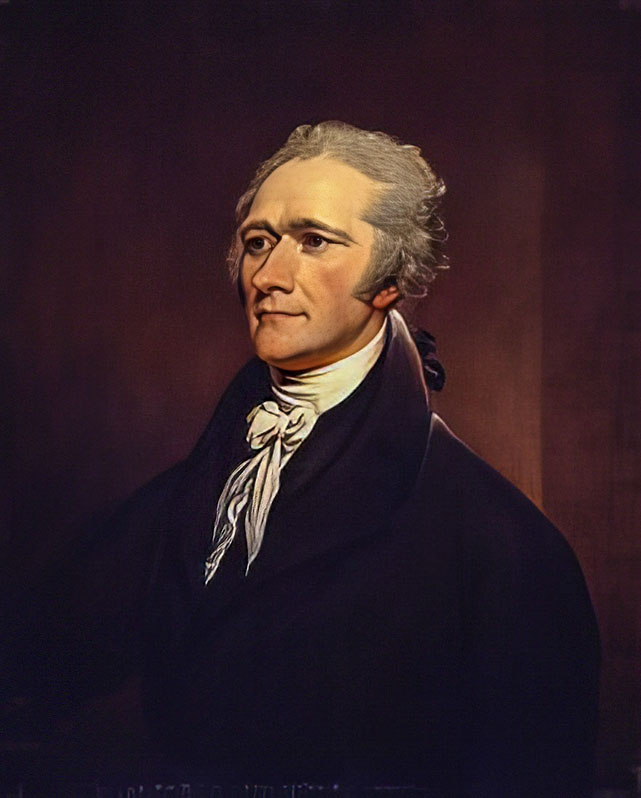Alexander Hamilton

Alexander Hamilton was born out of wedlock on the island of Nevis in the British West Indies, likely in either 1755 or 1757. After his father abandoned the family and his mother, Rachel Faucette, passed away, Hamilton and his older brother James were left in dire financial circumstances. In the mid-1760s, they moved to Christiansted on St. Croix, then part of the Danish West Indies (now the U.S. Virgin Islands), where Hamilton’s early experiences of poverty and hardship shaped his character.
Despite these adversities, Hamilton displayed an impressive aptitude for reading, writing, and commerce from a young age. He found work as a clerk at the Beekman and Cruger trading company, which specialized in goods like sugar, rum, and molasses. This position exposed him to the intricacies of international commerce, shipping logistics, and colonial economics—foundational insights that would later inform his vision for the United States’ financial system.
St. Croix’s economy depended heavily on enslaved labor, and Hamilton’s exposure to the brutalities of the slave trade profoundly influenced his complex and occasionally contradictory views on slavery. Although he would support anti-slavery initiatives, he also had to navigate the political realities of a nation still reliant on enslaved labor.
Hamilton’s intellect shone through most conspicuously when he wrote a striking account of the 1772 hurricane that devastated St. Croix. This letter, published in the local newspaper The Royal Danish American Gazette, so impressed community leaders that they pooled resources to send him to North America for further education. Thanks to their sponsorship, he left St. Croix to attend preparatory school in New Jersey and eventually enrolled at King’s College (now Columbia University) in New York.
The practical skills Hamilton acquired on St. Croix—managing finances, tracking shipments, and communicating with traders—laid the groundwork for his later success as the first U.S. Secretary of the Treasury. He championed a strong central bank, the assumption of state debts, and the creation of a robust financial infrastructure, all of which drew on the lessons he learned in his formative years.
Crucially, Hamilton’s rise from orphanhood and poverty shaped his belief in meritocracy: that talent and hard work, rather than birth status, should determine one’s success. After leaving St. Croix in his early teens, he became deeply involved in the American Revolutionary cause, forging a path that made him one of the most influential Founding Fathers. His background on St. Croix, marked by both ambition and adversity, helped forge the resilience and vision that propelled him into the forefront of nation-building.